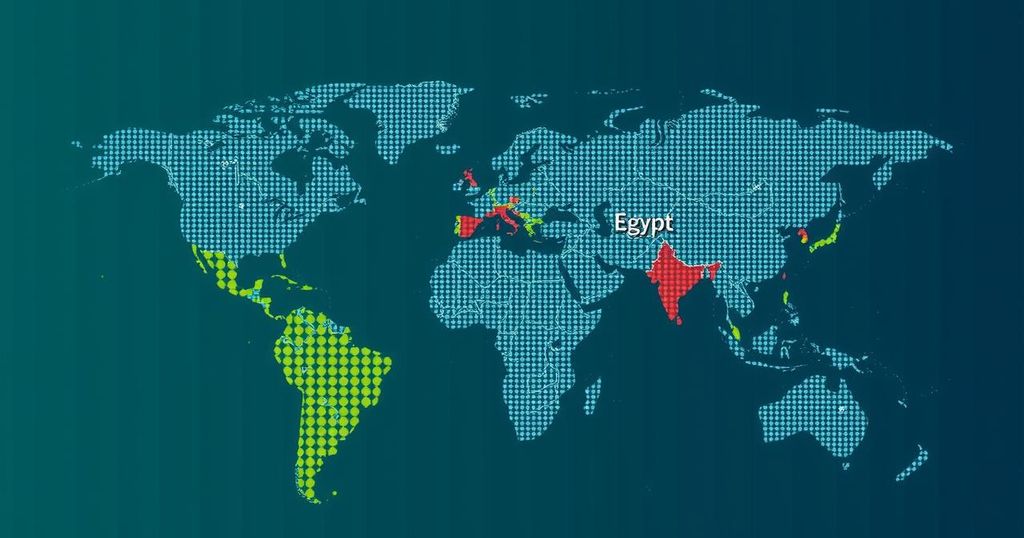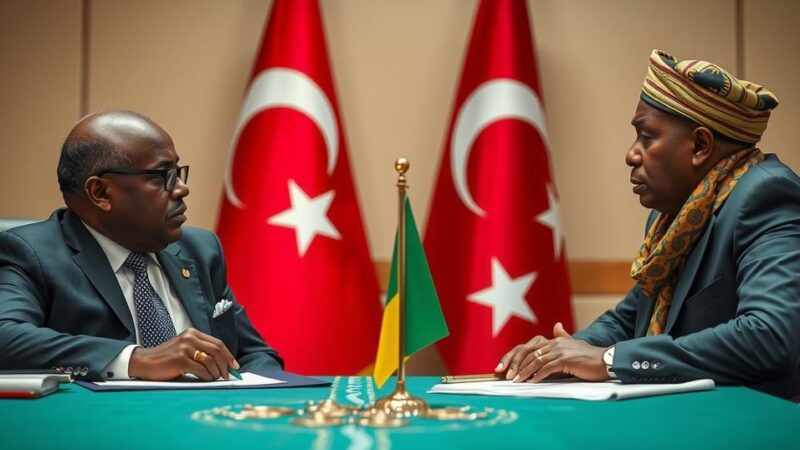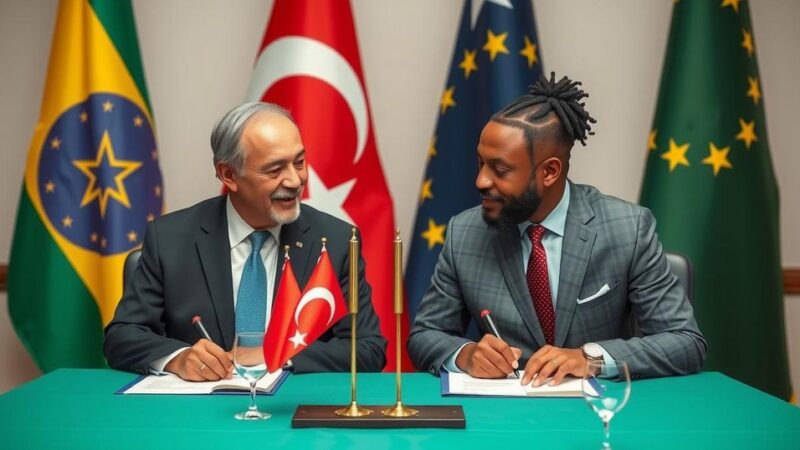The article provides an overview of notable global news, including Egypt’s certification as malaria-free, Cuba’s current power crisis due to Tropical Storm Oscar, political violence in Mozambique surrounding election disputes, and the WHO’s ongoing humanitarian response to severe flooding in South Sudan, impacting hundreds of thousands.
In recent global developments, the World Health Organization (WHO) has honored Egypt with a malaria-free certification, signifying a significant milestone after persistent efforts that spanned over a century. This recognition not only underscores Egypt’s triumph in combating this ancient disease but also serves as a beacon of inspiration for neighboring nations. Tedros Adhanom-Ghebreyesus, the WHO Director-General, remarked, “Malaria is as old as Egyptian civilization itself, but the disease that plagued pharaohs now belongs to its history and not its future.” In stark contrast, Cuba is grappling with dire conditions as Tropical Storm Oscar strikes, leaving approximately ten million residents without electricity due to a failing power grid. The UN has expressed readiness to provide technical support amidst ongoing challenges exacerbated by infrastructure issues, fuel shortages, and economic sanctions imposed by the United States. The UN Deputy Spokesperson, Farhan Haq, highlighted the storm’s slow movement, indicating further rainfall and potential flooding could lead to additional hardships for the citizens. Meanwhile, in Mozambique, calls for calm have followed the assassination of two opposition figures, Elvino Dias and Paulo Guambe, amid electoral tensions after the recent elections. UN Secretary-General António Guterres urged for prompt investigations into the incidents and stressed the importance of maintaining peace as the country awaits official electoral results from the FRELIMO party, which has been in power for nearly five decades. Lastly, the WHO is mobilizing efforts in South Sudan, where unprecedented flooding has afflicted millions, displacing over 226,000 individuals and threatening critical health infrastructure. This exacerbates an already precarious humanitarian situation as the country contends with a rising malaria crisis alongside suspected cholera cases. The WHO has distributed emergency medical supplies capable of treating over 870,000 people in the affected regions.
This article discusses recent global health and humanitarian developments, highlighting Egypt’s commendable achievement in eradicating malaria, a longstanding public health challenge. The report also illustrates Cuba’s struggles with natural disasters and power outages, emphasizing the role of the UN in providing support during emergencies. In Mozambique, political unrest and violence following elections are addressed, with calls for investigations and peaceful conduct. Additionally, the article covers WHO’s response to the severe flooding in South Sudan, stressing the health implications faced by displaced populations amidst the ongoing humanitarian crisis.
In conclusion, the recent news underscores both achievements and ongoing challenges in global health and humanitarian contexts. Egypt’s malaria-free certification represents a significant public health victory, while Cuba’s crisis, Mozambique’s political tensions, and South Sudan’s flooding highlight the continuing complexity of humanitarian issues worldwide. The international community, represented by organizations like the UN and WHO, plays a crucial role in addressing these challenges and supporting nations in distress.
Original Source: news.un.org







